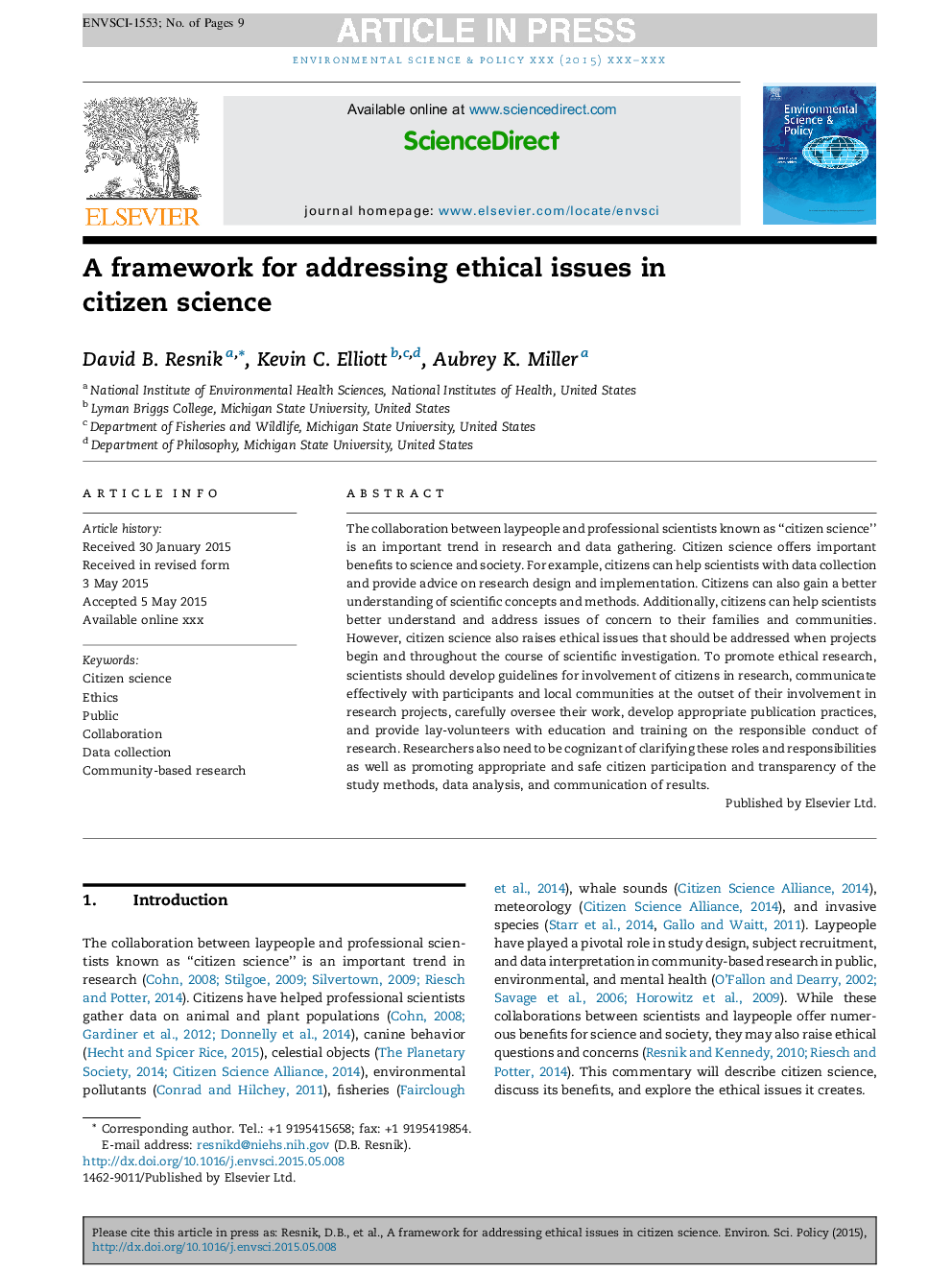| Article ID | Journal | Published Year | Pages | File Type |
|---|---|---|---|---|
| 7467428 | Environmental Science & Policy | 2015 | 9 Pages |
Abstract
The collaboration between laypeople and professional scientists known as “citizen science” is an important trend in research and data gathering. Citizen science offers important benefits to science and society. For example, citizens can help scientists with data collection and provide advice on research design and implementation. Citizens can also gain a better understanding of scientific concepts and methods. Additionally, citizens can help scientists better understand and address issues of concern to their families and communities. However, citizen science also raises ethical issues that should be addressed when projects begin and throughout the course of scientific investigation. To promote ethical research, scientists should develop guidelines for involvement of citizens in research, communicate effectively with participants and local communities at the outset of their involvement in research projects, carefully oversee their work, develop appropriate publication practices, and provide lay-volunteers with education and training on the responsible conduct of research. Researchers also need to be cognizant of clarifying these roles and responsibilities as well as promoting appropriate and safe citizen participation and transparency of the study methods, data analysis, and communication of results.
Related Topics
Physical Sciences and Engineering
Energy
Renewable Energy, Sustainability and the Environment
Authors
David B. Resnik, Kevin C. Elliott, Aubrey K. Miller,
